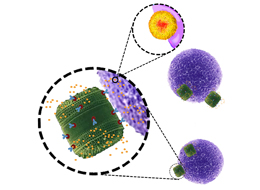18 April 2016
 From pharmaceutical drug delivery to water purification and energy storage, the application of nanotechnology to the world we live in is beginning to make revolutionary differences to industrial and medical practice.
From pharmaceutical drug delivery to water purification and energy storage, the application of nanotechnology to the world we live in is beginning to make revolutionary differences to industrial and medical practice.
In terms of understanding what those differences are, two renowned researchers in the field of nanotechnology who are connected to the University of South Australia, Emeritus Laureate Professor John Ralston and Dr Colin Hall will be talking on The Evolution of Nanotechnology as part of UniSA’s Successful Ageing seminar series, this Friday.
Professor Ralston, a physical and colloid chemist with complementary training in metallurgy, was appointed as the Founding Director of UniSA’s Ian Wark Research Institute, and was the first scientist to be honoured with the South Australian of the Year accolade.
Professor Ralston will outline the role nanotechnology and biotechnology plays in the modern world, emphasising the importance of engaging and educating the community on the latest nanotechnology innovations.
Dr Colin Hall, a Senior Research Fellow within the Thin Film Coatings Group at UniSA’s Future Industries Institute will discuss the commercial applications of nanotechnology research and its potential to revolutionise multiple industries, including his group’s focus on the commercial application of nano-composite coating technology.
“At the thin film coatings group we are looking at coatings on the nanoscale, from highly reflective surfaces that can harness the sun’s energy in concentrated solar applications to highly durable decorative coatings that are being developed to go on the next generation of cars,” Dr Hall says.
“Innovation with application is our catch cry, and we find it particularly stimulating to work closely with industry to develop new products and help make them globally competitive.
“Nanotechnology already enables much of our society, from the smart phone to the targeted medicine in our hospitals, nanotechnology is everywhere. The future of transport will require lightweight, electric vehicles which can sense the environment around them a respond autonomously. Nanotechnology already plays a pivotal role in this emerging technology and will become even more important.”
The seminar will take place between 2- 4pm on April 22 at the Barbara Hanrahan Building, North Terrace and guests are asked to register their attendance here.
Media contact: Will Venn office +61 883020096 mob 0401366054 email will.venn@unisa.edu.au


